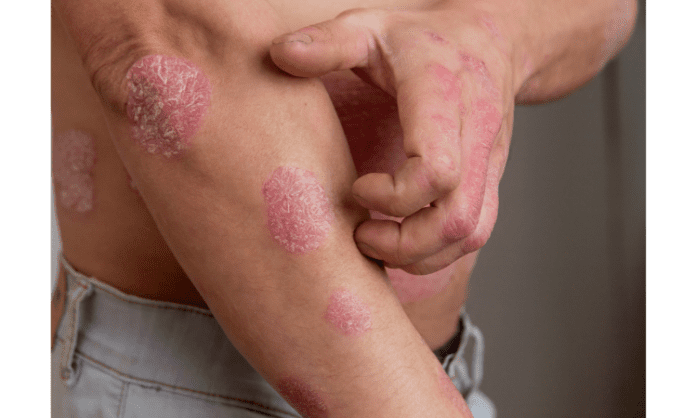
Psoriasis is a chronic condition that causes red, scaly patches on the skin. It’s often compared to having sandpaper skin because it can be very uncomfortable and painful. The disease affects more than three million people in the United States alone, making it one of the most common forms of arthritis. Although psoriasis has no cure, there are treatments available to help reduce symptoms and prevent flare-ups; however, they may not work for everyone who suffers from this disease. In this article, we’ll discuss what psoriasis is and how it can be treated with both conventional medicines as well as alternative methods such as natural remedies.
What is psoriasis?
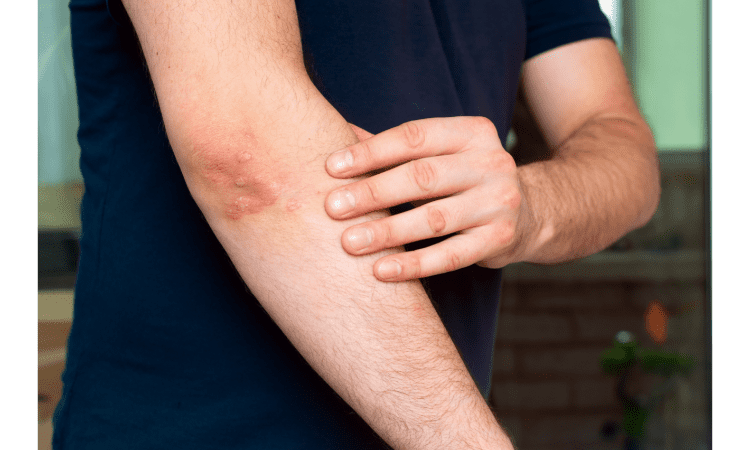
Psoriasis is a chronic, non-contagious disease that affects the skin. It causes red, scaly patches to appear on the scalp and other parts of the body. Although it can affect any part of your body, it most commonly appears on your elbows and knees.
Some people have mild symptoms for years without knowing they have psoriasis; others get worse within days or weeks of developing symptoms. The condition may go away for a time only to reappear later in life or may remain constant throughout life with no change in severity from year to year.
The cause of psoriasis
The exact cause of psoriasis is not completely understood. However, it is known that the disease develops when skin cells grow too quickly and die off more rapidly than usual. The resulting buildup of dead cells creates lesions in the skin that can appear as thick red patches or scaly plaques on different parts of the body.
In most cases, psoriasis develops after an injury or infection to your skin. It may also occur during pregnancy or due to stress and other factors such as smoking, exposure to chemicals, and drugs like lithium carbonate (a medication used for treating bipolar disorder).
The immune system usually attacks invading bacteria or viruses by fighting off symptoms like fever and inflammation; however, in some people with psoriasis, their immune systems start attacking healthy cells instead which causes excessive scaling on the top layer of their skin.
Parts of the body psoriasis may affect
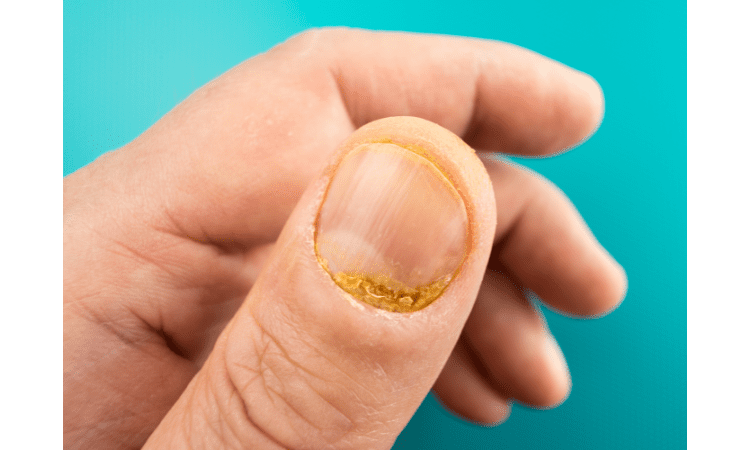
Psoriasis can affect many areas of the body, including:
- Skin
- Nails
- Joints and related tissues such as tendons, ligaments, and cartilage
- Scalp (which can lead to hair loss)
- Genitals (for both men and women)
Other sites for psoriasis include the mouth, ears, and even the under-arm area. In addition to these areas that are most commonly affected by psoriasis, there are a few other rarer sites of involvement such as the brain and lungs.
The different types of psoriasis
In addition to its causes and symptoms, psoriasis is also divided into different types. Each type has its own characteristics but they all have one thing in common: the production of new skin cells at a faster rate than normal. The most common types of psoriasis include:
- Plaque psoriasis
- Guttate psoriasis
- Inverse psoriasis
- Seborrheic dermatitis
- Psoriatic arthritis
- Pustular (hand-foot-skin) syndrome (PFS)
What are the symptoms of psoriasis?
Psoriasis symptoms vary from person to person. Some people only have red, inflamed patches of skin that can easily be covered with clothing. Others may experience intense itching and scaling, which can make it difficult to sleep at night.
The following are some common signs and symptoms of psoriasis:
- Itching
- Redness (erythema)
- Dry skin (xerosis)
- Flaking and scales (desquamation) * Blisters (papules)
- Scabs (crusts)
How can psoriasis be diagnosed?
Psoriasis is a chronic condition, but it can be treated. The best way to diagnose psoriasis is by taking a skin biopsy of the affected area. This involves removing some skin cells from your body and examining them under the microscope for signs of inflammation and damage. A blood test may also help determine if you have psoriasis or another condition that causes similar symptoms (such as eczema).
Skin scraping tests may be done in areas where there are no symptoms of psoriasis, but these are rarely used anymore because they’re less accurate than other methods. Ultrasound tests are sometimes used when diagnosing this condition because they can show up any thickening of your skin layers or abnormal growths that could point to an underlying cause for your symptoms.
How can psoriasis be treated?
Prevent dry skin
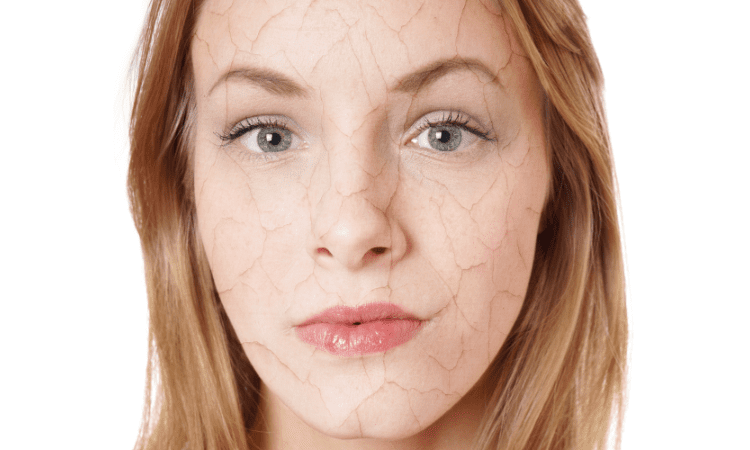
If you have psoriasis, there are some things that you can do to help prevent dry skin. Avoid bathing too much. You may be tempted to shower more than usual because it feels good after a stressful day or when you have an itch. This is not necessary and will actually make your skin drier by washing away the natural oils that keep it moisturized.
Instead, use a moisturizer every day on your entire body—especially on your hands and feet—and apply lotion after showering or bathing (and even before bed). A humidifier in the room also helps keep moisture levels up in the air so that your skin does not become too dry overnight.
If soap is causing problems for you, try using liquid soaps instead of bar soaps which tend to be harsher and can irritate already irritated skin even further.
Eat healthy food

One of the best ways to treat psoriasis is by eating a healthy diet. A balanced diet rich in vitamins and minerals can help keep your skin healthy, which can reduce inflammation and the symptoms of psoriasis. Eat foods that are high in omega-3 fatty acids, such as salmon and walnuts, when possible. Avoid foods that are high in saturated fat, such as red meat or butter; sugar; salt; trans fats; processed foods; fast food; white bread/pasta/rice (these products have low nutrient value); fried/greasy foods (high sodium content).
Use Aloe vera
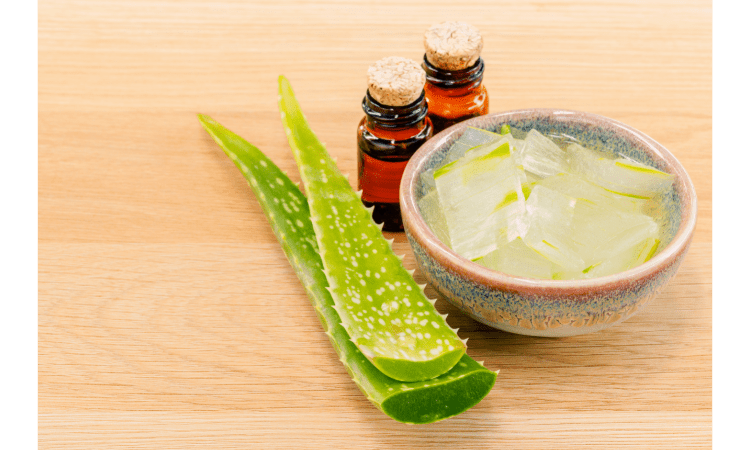
Aloe vera is a unique plant that has been used for thousands of years to treat various skin conditions. It contains antioxidants, natural anti-inflammatory properties, and many other nutrients that make it an effective psoriasis treatment.
It can reduce inflammation, which is one of the main symptoms of psoriasis. Aloe vera also helps repair your skin by boosting collagen production and strengthening blood vessels so they’re able to improve circulation in your tissue. This allows new cells to grow faster than before without getting damaged by excess UV rays from the sun or other sources like smoking cigarettes which contribute to premature aging as well as more serious health problems like cancer or cardiovascular disease if left untreated long enough.”
Avoid fragrances

Fragrances can irritate your skin, especially if you have a condition like psoriasis. To reduce irritation from scents, use fragrance-free soaps and detergents and avoid scented hair products. Use unscented shampoo and conditioner instead of products with fragrances in them; this will help keep your skin from becoming even more irritated by exposure to these chemicals each time you wash your hair. You should also try to eliminate scented candles or other air fresheners from your home (and office), as well as scented dryer sheets used in laundry cycles; all of these can cause irritation as well.
Steroid creams

Steroid creams are a weak form of corticosteroids, which are used to treat inflammation and itching. They can be helpful in reducing inflammation and itching. However, it is important to note that long-term use of steroid creams has risks associated with them. For example, these medications can actually worsen the symptoms of psoriasis as well as increase the risk of developing side effects such as thinning skin and stretch marks.
Vitamin D-based cream

Vitamin D-based cream is the most common psoriasis treatment and is used to treat all types of psoriasis. It’s a topical treatment that is applied directly to the skin. It contains vitamin D, which helps your body absorb calcium and phosphorus. When you have a deficiency in vitamin D, this may cause your immune system to react abnormally, leading to inflammation and irritation of the skin.
The key ingredients in this type of treatment are steroids, salicylic acid, coal tar or plant extracts.
Coal Tar
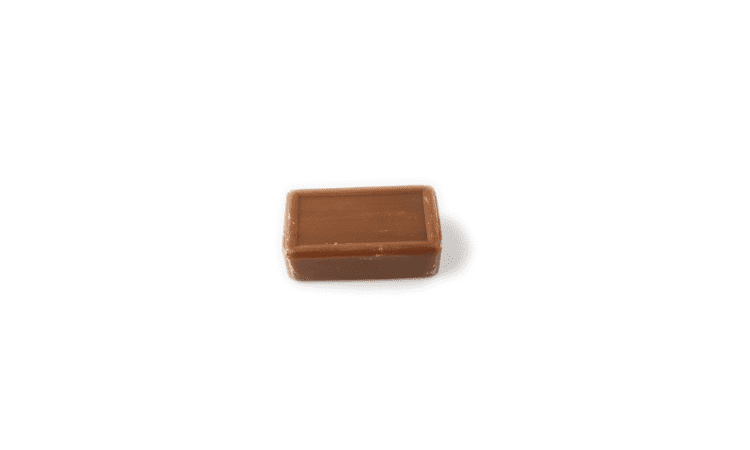
Coal tar is a byproduct of the coal industry. It has been used for centuries to treat psoriasis. Coal tar is an effective treatment for psoriasis, and it has the advantage of being cheaper than other treatments. However, it does have some side effects that you should be aware of:
- It can damage your skin’s outer layer (the epidermis).
- It can cause irritation or allergic reaction in sensitive people.
- It may increase sensitivity to sunlight.
Coal tar can be used alone or in combination with other treatments such as creams or light therapy (phototherapy).
Retinoids

Retinoids are a group of vitamin A-related compounds that are used to treat acne and psoriasis.
Twork by accelerating the growth of skin cells, which slows down the production of new cells with thickened or hardened skin in people with psoriasis.
They can cause side effects such as irritation, redness, and peeling (especially if you have sensitive skin).
Phototherapy

A phototherapy is a form of phototherapy that uses ultraviolet light. It’s called “phototherapy” because it’s the use of light to treat psoriasis. The goal of phototherapy is to kill the cells that cause psoriasis.
The way this works is simple: Red light is used first, and then there are different intensities of UVB and PUVA (psoralen plus UVA) treatments given over time depending on how severe your symptoms are and how long you want them gone for.
Methotrexate
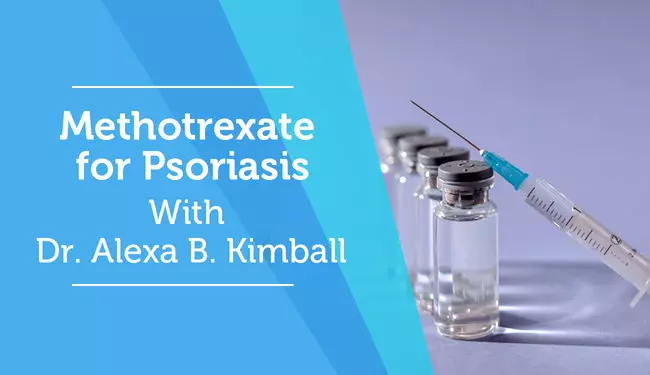
Methotrexate is an immunosuppressant drug. It can be used to treat psoriasis and other autoimmune diseases.
Methotrexate has serious side effects, including liver disease and infection from high white blood cell counts. Because of the risk of serious complications from methotrexate, people with psoriasis should only take this drug under the supervision of a qualified doctor who has experience in treating it with methotrexate. Methotrexate can be taken orally or injected into joints or under the skin (topical).
Cyclosporine
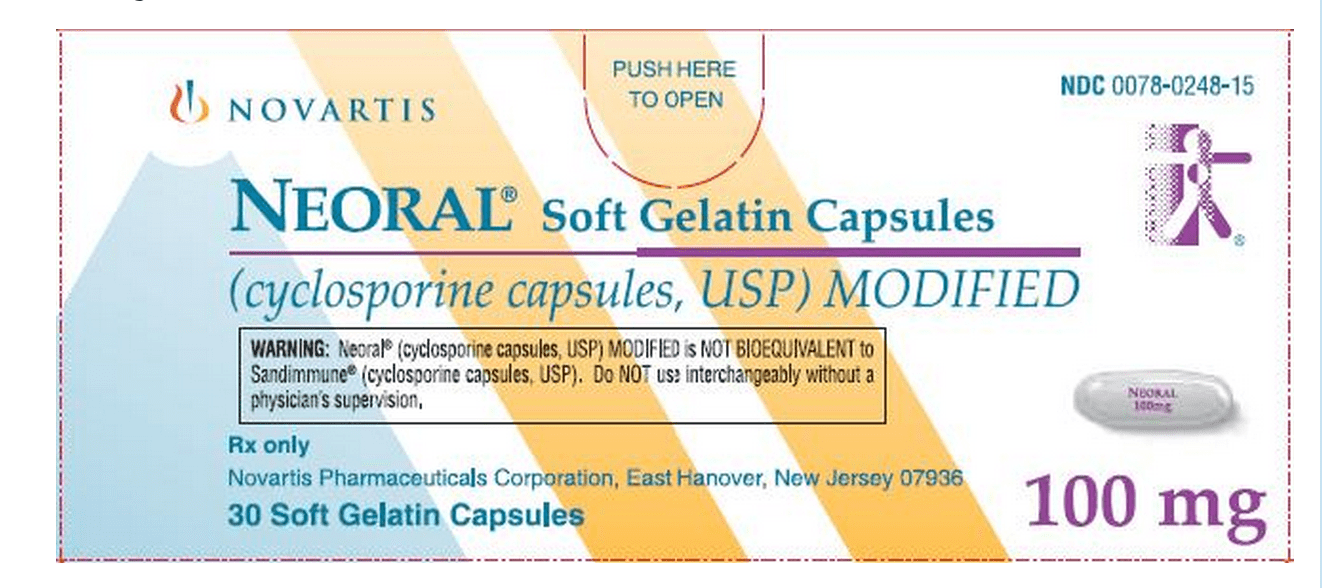
Cyclosporine is a prescription medication that has been used to treat psoriasis for many years. It’s an immunosuppressant, meaning that it reduces your immune system’s response to the psoriasis plaques on your skin.
Cyclosporine can be taken as a pill or injection; either way, it works in much the same way: by reducing inflammation and slowing down the growth of skin cells in affected areas (which helps clear away plaque).
Because cyclosporine suppresses the body’s immune response, there are some risks associated with taking this medication—including infection and cancer—so you should talk to your doctor about these before starting treatment.
Anthralin
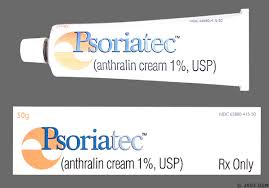
Anthralin is a topical medication that’s used to treat psoriasis. It’s an alternative to steroid creams and can be applied to the skin as a cream, ointment, or gel. This medication is available by prescription only; it must be applied by a healthcare professional at regular intervals to get the best results. It works by slowing down cell division in your body and helps stop the growth of new skin cells in affected areas.
Conclusion
Psoriasis is a difficult disease to manage, but with the right treatment and lifestyle changes, it can be managed. The goal of this article is to help you learn more about psoriasis so that you can make informed decisions about treatment options for yourself or your loved ones who suffer from this condition.
Read Also: How to Treat Heat Rash This Summer











